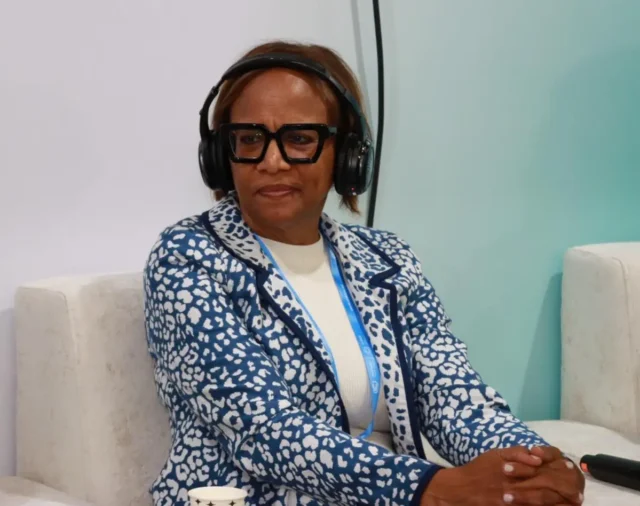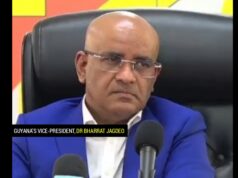While the Caribbean’s transition to energy efficiency and renewable energy is gaining momentum, greater private sector investment, large-scale investor-friendly projects, and enhanced technical capacity—especially among women and girls—are critical to accelerating progress. This was the consensus among representatives from the Caribbean Development Bank (CDB), the Caribbean Centre for Renewable Energy and Energy Efficiency (CCREEE), and Global Affairs Canada (GAC) during discussions at the 29th United Nations Climate Change Conference (COP29).
Speaking at a COP29 side event titled “SuRGE and the Caribbean Energy Transition”, CDB’s Acting Vice President (Operations), Therese Turner-Jones, highlighted the region’s need for a holistic approach to energy transition. “This is about what the energy transition should look like across the region—not just focusing on decarbonization but envisioning an energy mix including geothermal, photovoltaic, and solar,” Turner-Jones explained. She emphasized that awareness and capability-building are vital for accelerating this transition.
The CDB is currently laying the groundwork to scale up climate-related support through innovative approaches to address investment bottlenecks. Turner-Jones stressed the importance of sustained partnerships across all stakeholders to overcome challenges related to legislation, policy, and capacity. She pointed to the Supporting Resilient Green Energy (SuRGE) initiative—a program funded by the Government of Canada—as a model for advancing sustainable energy projects.
Through SuRGE, the CDB is supporting key renewable energy initiatives, including a geothermal project in Dominica and a solar power and energy storage project in Grenada. The program also provides financing for sustainable energy projects in Borrowing Member Countries while strengthening policy development, technical capacity, and resilience within the energy sector.
Mohammad Rafik Nagdee, Executive Director of CCREEE, echoed the need for deeper partnerships and standardized investment approaches to attract greater scalability and technology access. “We can work together to generate a detailed pipeline of projects for aggregation and investment,” Nagdee said. He emphasized that project pipelines must be rooted in an understanding of regional and national objectives, ensuring alignment with the Caribbean’s development goals.
Andrew Hurst, Executive Director of Climate Finance at GAC, underscored the importance of innovation, knowledge sharing, and sustained collaboration. He pointed to the ongoing SuRGE initiative as a working example of solution-oriented partnerships that address complex legislative and policy challenges. “Innovation and solution-oriented partnerships like SuRGE demonstrate how we can improve accessibility to finance and implement successful green energy projects,” Hurst noted.
The representatives concluded that while progress is being made, more effort is needed to overcome the Caribbean’s unique challenges. Private sector participation, streamlined investment processes, and building technical expertise—especially among women and girls—will be critical to achieving the region’s energy transition goals.
As the Caribbean navigates this transformative period, initiatives like SuRGE and collaborations between multilateral development banks, regional organizations, and donor agencies offer a promising roadmap to a sustainable and inclusive energy future.













